When it comes to city passes and travel cards, it’s usually fairly easy to figure out whether they would be worth it for you or not. For things like the Paris Pass or London Pass, they have a list of the most popular attractions and how much they cost, right there for you to see. The Swiss Travel Pass, however, is shrouded in mystery, or at least it was until I spent several days tracking down all of the prices and benefits.
A great many of the visitors and commenters on my popular page about where to go in Switzerland on a short visit are wondering whether the Swiss Travel Pass is a good deal. Embarrassingly, I’ve always had to answer that I found the pass too confusing to confidently advise people on. Now that has all changed, after literally days of research.
Note: This article was last updated in February, 2024.
Disclosure: This is a reader-supported website and some of the links are affiliate links where a small commission is paid to help keep this site going, but the cost to visitors is the same. The Swiss Travel Pass seems quite expensive at first, so it felt like it might be hard to get your money’s worth out of it. As it turns out, it’s pretty easy to get good value, and it’ll be a good deal for many visitors.
New in 2024
Prices increased an average of 5.9% from 2023 on the Swiss Travel Passes, but the Half Fare Card remains at CHF120, which is where it’s been for many years. Train fares in the country increased by similar percentages so the value is basically unchanged. There were no other notable changes to service or the included attractions and train routes.
>>>Buy the Swiss Travel Pass online
Where to stay in Interlaken and the Lauterbrunnen Valley
Since most people reading this will be visiting the Interlaken area and I get so many questions about it, I decided to write a detailed guide on which area to stay in while visiting this area.
>>>Where to stay in Interlaken or the Lauterbrunnen Valley in Switzerland
I included many huge photos in that post so readers will be able to get a better idea of what each place looks like and they are worth a look by itself.
>>>Lucerne or Interlaken: Which to visit and how long to stay?
The article just above will help you decide on how long to spend in each of Switzerland’s two best tourist areas.
Are you 100% sure where you want to go in Switzerland? This should help
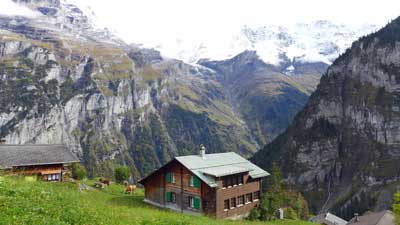
Zurich and Geneva are pleasant but dull. The good news is that Switzerland is packed with amazing sights and none of them are the big cities. If you aren’t 100% locked in yet, please read the article below and I think you’ll enjoy it.
Is the Swiss Travel Pass a good deal? Here's the short version

The bottom line is that the scenery, train journeys, and cable car rides in Switzerland are stunning and not found anywhere else in the world. They are also quite expensive if you pay for them one at a time. So no matter how you visit Switzerland, you are going to be paying quite a bit, or skipping the absolute best things that you’ve come there to see.
With good planning it’s quite easy to get great value out of a Swiss Travel Pass, but it might be a poor choice for those who don’t like to plan ahead. You can easily do a scenic train ride and a cable car in the same day, and still have time to do a scenic hike in the process.
First class or second class? Good news for most people
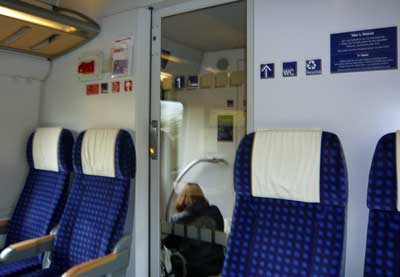
That said, Swiss Trains are literally the nicest in Europe and even the Second Class seats and carriages are nicer and roomier than trains in neighboring countries. The First Class seats are larger and nicer with only 3 across the cabin instead of 4, but honestly Second Class is perfectly comfortable for almost everyone.
Again, First Class on European trains like this is generally popular with business travelers where the company is paying and they need to get work done during the ride, and also senior citizens who don’t want to worry about a carriage full of backpackers. For most of the rest of us, Second Class is more than comfortable enough and the seat width and legroom compare to business-class airline seats. I’m a big and tall guy and I almost always travel in Second because it’s plenty comfortable enough and all the seats arrive at the same time anyway.
The longer you'll be in Switzerland, the better deal a Swiss Travel Pass will be
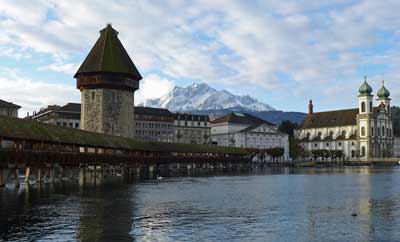
In other words, if you are staying 5 days or fewer, you have to do the math to determine your best option. But if you are spending even 6 or 7 days in Switzerland then the 6-day or 8-day Pass is almost guaranteed to be a great deal and your best choice. Once you have a Swiss Travel Pass you’ll absolutely love the ability to just hop on any train (excellent trains, always on time) and most boats and cable cars without having to worry about the cost. The per-day cost of an 8-day Pass even if you only use 6 of those days is about CHF65, and Switzerland is filled with amazing train rides and boats and cable cars that can get you that much value before noon each day.
Schilthorn (50% discount) and Jungfraujoch (25% discount) are cheaper with a Swiss Travel Pass
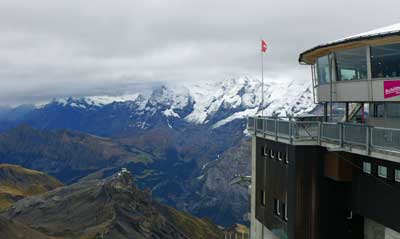
Both of those peak experiences are extraordinary and different from each other. Even so, compared to Jungfraujoch, Schilthorn is also faster and more comfortable on the way up and down. You can enjoy an excellent visit to Schilthorn in 4 hours or so (or a bit longer if you eat at the spinning Piz Gloria restaurant at the top), while a visit to Jungfraujoch requires closer to 6 hours.
NOTE: Schilthorn closes for maintenance for a week or two in late November most years.
Consider the Swiss Half-Fare Card instead
If you AREN’T going to be doing two or more of the long (and expensive) scenic train trips, you will get much better value out of the Swiss Half-Fare Card, which is explained a bit below.
Mt Rigi, near Lucerne, is 100% covered by the Swiss Travel Pass
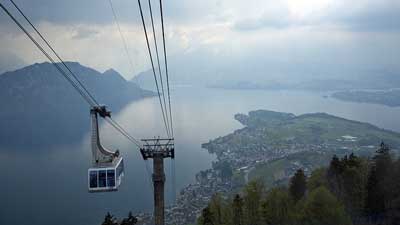
Is a Swiss Travel Pass right for you?
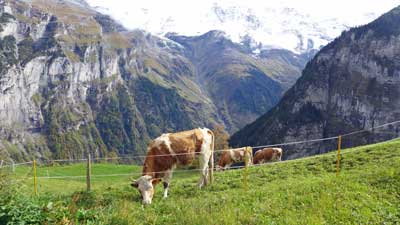
Most people only visit Switzerland for 5 or 6 days at most, so the 3-day and 4-day passes are the ones to focus on. But if you are staying for 8 days or more, those longer passes are almost certainly a great deal for you.
Long story short, if you plan on doing 2 of the more expensive scenic trains and the Jungfraujoch railway or the Schilthorn cable car, then the pass will save you money. Switzerland is expensive, but it’s worth it, and the travel pass can help make it a bit more affordable.
What the Swiss Travel Pass includes
- Free rail travel on normal trains and most scenic trains
- Discounted travel (about 50%) on popular tourist mountain trains
- Discounted travel (about 50%) on popular tourist cable cars
- Free travel on public transport in 75 towns and cities
- Free entry to around 500 museums in Switzerland
The Swiss Travel Pass covers the fare on the most popular scenic and panoramic trains. You can choose a normal seat in a regular carriage for no additional cost, but there is a supplement of CHF8 to CHF49 for a reserved seat in one of the special panorama carriages on these routes.
Prices of the 2024 Swiss Travel Pass
1st Class
- Adult 3-day Pass: CHF389
- Youth (4 to 25) 3-day Pass: 274
- Adult 4-day Pass: 469
- Youth (4 to 25) 4-day Pass: 330
- Adult 6-day Pass: 602
- Youth (4 to 25) 6-day Pass: 424
- Adult 8-day Pass: 655
- Youth (4 to 25) 8-day Pass: 469
- Adult 15-day Pass: 723
- Youth (4 to 25) 15-day Pass: 512
2nd Class
- Adult 3-day Pass: CHF244
- Youth (4 to 25) 3-day Pass: 172
- Adult 4-day Pass: 295
- Youth (16 to 25) 4-day Pass: 209
- Adult 6-day Pass: 379
- Youth (16 to 25) 6-day Pass: 268
- Adult 8-day Pass: 419
- Youth (16 to 25) 8-day Pass: 297
- Adult 15-day Pass: 459
- Youth (16 to 25) 15-day Pass: 328
Swiss Travel Pass Flex
This version costs a bit more, but you don’t have to use the travel days consecutively. It’s a great option for anyone who won’t be taking longer train rides each day.
- Adult 3 Flex days in 1 month (1st Class): CHF445
- Adult 3 Flex days in 1 month (2nd Class): 279
- Adult 4 Flex days in 1 month (1st Class): 539
- Adult 4 Flex days in 1 month (2nd Class): 339
- Adult 6 Flex days in 1 month (1st Class): 644
- Adult 6 Flex days in 1 month (2nd Class): 405
- Adult 8 Flex days in 1 month (1st Class): 697
- Adult 8 Flex days in 1 month (2nd Class): 439
- Adult 15 Flex days in 1 month (1st Class): 755
- Adult 15 Flex days in 1 month (2nd Class): 472
Where to buy the Swiss Travel Pass
The Swiss Half-Fare Card – A better option for many visitors
Far less confusing than the Swiss Travel Pass, you can instead get a Swiss Half-Fare Card, and it will be a better deal for many travelers. The price is lower and it’s much easier to do the math, and the discounts are greater on some things as well.
- Swiss Half-Fare Card for 30 days: Adults – CHF120 or US$129
What you get:
Those who buy the Swiss Half-Fare Card will get 50% discount on all trains, buses, and boats in Switzerland for up to 30 days, as well as 50% off all public transportation in 75 cities and towns.
>>>Buy the Swiss Half-Fare Card
Why the Half-Fare Card is a better deal for many
While the Swiss Travel Pass is a great deal for those doing many of the expensive scenic journeys and mountain sights within a few days, it’s not good value for those who are doing fewer of the expensive trips and/or those who are staying longer. Also, the Swiss Travel Pass only provides a 25% discount on the amazing Jungfraujoch Railway, which costs between CHF120 and CHF224 return depending on your starting point, while the Half-Fare Card provides a 50% discount.
The math is simple as well. You can just add up the cost of the trains, boats, and buses you’ll be taking while in Switzerland, and if the total is more than CHF240 or so, the Half-Fare Card will save you money.
Example itinerary:
- Zurich to Interlaken train (2nd Class): CHF50
- Schilthorn Cable Car: CHF112
- Jungfraujoch railway from Interlaken: CHF205
- Interlaken to Lucerne train (2nd Class): CHF33
- Mt Rigi roundtrip from Lucerne: CHF84
- Engelberg (near Lucerne) to Mt. Titlis Cable Car: CHF92
- Lucerne to Zurich train (2nd Class): CHF25
Total per person: CHF601
Total with Half-Fare Card (including price of card): CHF420.50
It would be tough to do all of those things in 4 days, although it is possible. If you bought a 4-day Swiss Travel Pass here is how it adds up:
4-Day Swiss Travel Pass: CHF259
Supplements for Schilthorn, Jungfraujoch, and Mt. Titlis: CHF203.25
Total cost: CHF462.25
Bottom line on the Swiss Half-Fare Card
Since the Half-Fare Card lasts 30 days and provides a larger discount on Jungfraujoch, it is better value for visitors who want to include that scenic top-of-Europe rail journey on their trip. The discounts also add up more quickly on Schilthorn and Mt. Titlis trips, just to name two examples, and you don’t have to take many longer rail journeys to get value out of the Half-Fare Card.
Swiss Saver Day Pass (A one-day unlimited travel pass)
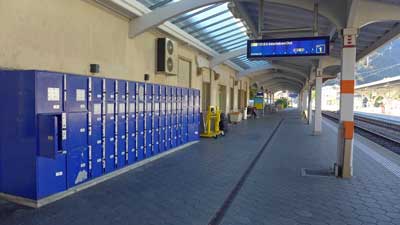
If you buy the Saver Day Pass at least 21 days in advance (and up to 60 days in advance) the 2023 cost is:
- 2nd Class (with Half Fare Card): CHF29
- 1st Class (with Half Fare Card): CHF82
- 2nd Class (with no Half Fare Card): CHF52
- 1st Class (with no Half Fare Card): CHF97
Once you research the normal cost of Swiss train fares you’ll see that the above prices are a very good deal for anyone riding more than 150 kilometers or so in a day. If you are just going, for example, from Zurich to Lucerne or Interlaken on a day, it’ll be cheaper to just buy that ticket individually. But if you are going from Geneva or Montreux to Interlaken or Lucerne then the Saver Day Pass will be much cheaper. Better still, you can use a Saver Day Pass to go from Interlaken to Geneva and back on the same day on the Goldenpass line and returning on the faster train through Bern, and it will still all be included for free.
If you don’t buy a Saver Day Pass at least 14 days in advance it’s more expensive, and if you only buy 1 to 3 days in advance it’s VERY expensive, so the key is to buy early. This is all confusing, but the Saver Day Pass should be a great option for many people only in Switzerland for one to three days.
Popular Swiss panorama scenic trains
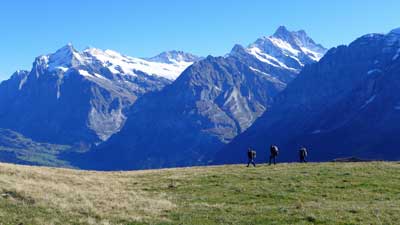
- Glacier Express
- Route: Zermatt to St. Moritz
- Train type: Panorama
- Journey time: 8 hours 3 minutes
- Distance: 291km
- 1st Class fare: CHF272
- 2nd Class fare: CHF159
- Compulsory seat reservation fee: CHF44 or 49
- Supplement for Swiss Pass holders: 13 to 33 for panorama carriage
- Bernina Express
- Route: Chur to Tirano and Lugano
- Train type: Panorama and bus
- Journey time: 4 hours 13 minutes and 3 hours 10 minutes
- Distance: 148km and 90km
- 1st Class fare: CHF113
- 2nd Class fare: CHF66
- Compulsory seat reservation fee: CHF32
- Supplement for Swiss Pass holders: 10 to 14 for panorama carriage
- GoldenPass Line
- Route: Lucerne to Montreaux
- Train type: Panorama
- Journey time: 5 hours 8 minutes
- Distance: 191 km
- Prestige Class fare: CHF131
- 1st Class fare: CHF96
- 2nd Class fare: CHF56
- Supplement for Swiss Pass holders: 8 to 15 for panorama carriage
- Gotthard Panorama Express (formerly Wilhelm Tell Express)
- Route: Lugano or Locarno to Lucerne
- Train type: Panorama and boat
- Journey time: 5 hours 21 minutes
- Distance: 182 km
- 1st Class fare: CHF164
- 2nd Class fare: CHF135
- Supplement for Swiss Pass holders: 39 to 49 for panorama carriage
- Swiss Chocolate Train
- Route: Montreux to Broc round trip
- Train type: Panorama or First Class
- Journey time: X hours X minutes
- Distance: 82 km
- 1st Class fare: CHF99
- 2nd Class fare: 89
- Supplement for Swiss Pass holders: 39
Popular Swiss scenic and theme trains
The scenic trains below are also extremely popular as sightseeing journeys rather than just as transportation, but can be used as both.
- Jungfraujoch round trip
- Route: Interlaken to Jungfraujoch
- Train type: special mountain train
- Journey time: 4 hours 41 minutes, round trip, plus time on top
- Distance: 73 km
- 1st Class fare: N/A
- 2nd Class fare: CHF224
- Supplement for Swiss Pass holders: 147 (so, a saving of CHF77)
- Gornergrat Railway
- Route: Gornergrat Railway
- Train type: Cog railway
- Journey time: 44 minutes return
- Distance: 10 km
- 1st Class fare: N/A
- 2nd Class fare: CHF90
- Supplement for Swiss Pass holders: 45
- Rigi round trip
- Route: Lucerne to Rigi
- Train type: Cog railway
- Journey time: 3 hours 25 minutes, plus time at the top
- Distance: 58 km
- 2nd Class fare: CHF78
- Supplement for Swiss Pass holders: None (this one is free with the pass)
- Mt Rigi Excursion (one-way and walk down)
- Route: Lucerne to Mt Rigi
- Train type: cogwheel train and/or cable car
- Journey time: 45 minutes up
- 1st Class fare: N/A
- 2nd Class fare: 49
- Supplement for Swiss Pass holders: 0
- Lotschberg Mountain Route and Centrovalli
- Route: Bern to Locarno
- Train type: Narrow gauge
- Journey time: 4 hours 40 minutes
- Distance: 212 km
- 1st Class fare: CHF158
- 2nd Class fare: CHF90
- Supplement for Swiss Pass holders: 5
- Jura round trip (Watchmaking Tour)
- Route: Neuchatel through Jura
- Train type: Regular
- Journey time: 3 hours 0 minutes
- Distance: 143 km
- 1st Class fare: CHF168
- 2nd Class fare: CHF108
- Supplement for Swiss Pass holders: 0
- Pre-Alpine Express
- Route: St. Gallen to Lucerne
- Train type: Regular
- Journey time: 2 hours 15 minutes
- Distance: 146 km
- 1st Class fare: CHF83
- 2nd Class fare: CHF47
- Supplement for Swiss Pass holders: 0
- Jura Foot Line
- Route: Basel to Geneva
- Train type: Regular
- Journey time: 2 hours 40 minutes
- Distance: 248 km
- 1st Class fare: CHF132
- 2nd Class fare: CHF75
- Supplement for Swiss Pass holders: 0
Popular Switzerland cable car rides
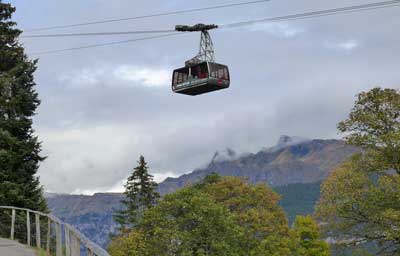
- Schilthorn
- Route: Stechelberg (Lauterbrunnen) to Schilthorn
- Train type: cable car
- Journey time: 1 hour
- 2nd Class fare: CHF108
- Supplement for Swiss Pass holders: 54
- Engelberg to Mt. Titlis cable car
- Route: Engelberg to Mt. Titlis
- Train type: cable car
- 2nd Class fare: CHF96
- Supplement for Swiss Pass holders: 46
The Swiss Travel Pass also includes free museum admission, but…
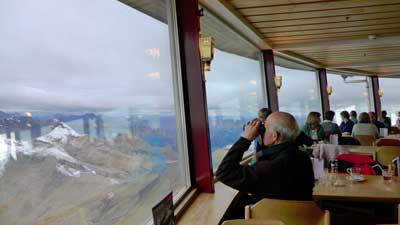
The problem is that the museums are only free on valid travel days, and almost no one would visit more than one or two museums with a Swiss Travel Pass. The trains and cable cars are so expensive that the pass gives very good value to cover those, so you don’t want to waste precious sightseeing time walking through a museum that only costs CHF10 anyway.
In other words, calculate the value of a Swiss Travel Pass on the travel savings only, and if you visit a museum here or there, then great. Most people are better off trying to squeeze in an additional train ride each day, and ignoring the museums. Switzerland is all about the outdoor scenery. As nice as the museums may be, they are not why you are there.
The pass includes free public transport in most Swiss cities
Similar to the free museum part of the offer, it’s best to ignore or minimize the value of free public transportation. It could be helpful in Zurich, but in most other Swiss tourist towns you won’t need much public transport. In fact, in Interlaken, each hotel or hostel guest automatically gets a card for free public transportation within the town (including between the two train stations).
So you might use a ride or two each day on public transport, but that won’t add up to much in terms of value of your Swiss Travel Pass.

I will be staying in Montreux for 1 day and in Grindelwald for 2 days. I was thinking of getting the Half Fare Card since I won’t be in Switzerland for long. Is this a good choice? Also, what are some trips/experiences I absolutely cannot miss during my time in these places?
Victoria,
I would definitely get a Half Fare Card for a visit like this. It may seem expensive, but honestly it’s really like everything in Switzerland is double the normal price and almost everyone uses a Half Fare Card. The residents buy an annual version and the 30-day tourist version will pay for itself in two days. Since you’ll be in the Interlaken area and more specifically the Lauterbrunnen Valley you have some amazing options. I just wrote a new article about what to do in the Interlaken area and I’m sure you’ll get some good ideas. -Roger
Dear Roger,
Thank you for this very informative post. We’re a family of 4 adults and 2 kids and will be visiting Switzerland for 7 days in August. We’ll be flying to Zurich and spend a night there. The rest of the time we will be based in Bern and plan on taking day trips from Bern to Lucerne, Interlaken, Grindelwald, and Zermatt. We enjoy taking cable cars and boat rides. Any advice on which travel pass to get? Thank you so much, would appreciate your reply.
Yvette,
Sorry about the delay as I was away. I think the Swiss Travel Pass for 6 days will be perfect for you, or perhaps the 6 days Flexible one depending on how much it would save you on your arrival and departure days. If you need it for those days you can choose a day or two when you won’t be traveling so much to skip in the middle. With prices as they are now, the full pass should pay for itself in the first 4 days or so, especially if you’ll be going on as many train and cable car journeys as you mention. Have a great trip! -Roger
This has to be the MOST precise and informative blog on travel within Switzerland! Going to bookmark and possibly ask you some specific question once I more into planning my visit. Thanks
Pradeep,
I’m glad you found us and I’m adding new Switzerland content this week as well. Let me know if you have any questions. I can’t answer all of them, but I will do my best. -Roger
Comment*Question about the Swiss Pass and Half-Fare pass:
If travelling by train from, say, Munchen to Bern, do these passes click in as soon as you cross the border into Switzerland? If so, do you present it when buying a ticket in Germany, Austria or France? If not, how do you get the benefit?
Alison,
Great question. Yes, the Pass kicks in basically on the border. What you’d do is figure out the closest border stop on that route, probably the first one in Switzerland, and buy a train ticket to that station. And then your Swiss Travel Pass will be good for the rest of the journey. You might also have to pay for a seat reservation (usually around €5) since it’s an international train, but the domestic trains in Switzerland don’t require a seat reservation. It might be a bit confusing at first and hopefully you can find the correct station to buy the ticket for since it’s actually a pretty common situation.
It would be the same on the way out. You can ride the train in Switzerland for free with the pass, but you’d have to buy a ticket from the border station to your destination. I hope that helps. -Roger
Thank you very much for your elaborate guideline on swiss travel pass. It was really very worthy.
I along with 3 members of my family ( total 4 persons. 2 adults, one youth and 1 below 16) are planning to visit Switzerland in the 1st week of October 2024. We have a plan to cover the following:
1. Rhein fall and surroundings including German shopping area nearby
2. Zurich city and surroundings
3. Lucern, Mt Rigi and Stanserhorn
4. Interlaken, Lauterbrunnen , Grindelwald, Murren .
6. Schilthron/ Mt titlies ,(any one)
7. At least 1 scenic train route
8. If time permits, explore Bern and Basel by train .
Considering our above visit schedule, please advise me following:
1. Maximum how many days to stay in Swiss , 4 or 6 days.
2. Swiss Travel pass or Half fare pass will be economic? 4 days pass will be ok or 6 days pass.
3. Where to plan my accommodation / hotels. In single place or in multiple places? Where are those, considering my places of interest.
4. Daywise Itinerary plan.
Look forward to hearing from you at the earliest.
Warmest Regards.
from Bangladesh
Mohammad,
This sounds like a great trip. You’d need at least 6 days for all of this, but if you skip Bern and Basel you could do it in maybe 5 days. I would personally skip Basel and probably Zurich as well. They are both pleasant cities, but generally pretty dull. Switzerland is all about the scenery and somehow they have many of the most beautiful vista points in Europe, and also somehow quite a few relatively boring cities.
You’ll need at least two days in the Interlaken area and at least two days in Lucerne. Rhein falls can be done easily from Zurich if you are staying there at all, or from Lucerne in a bit more time.
As far as the scenic trains I’d just plan on taking the trains between the places you want to visit. With the exception of perhaps Zurich and its suburbs, every train ride in Switzerland is very scenic. You’ll see what I mean when you get there. They also have those 5 or 6 special routes with panoramic carriages and those are great as well, but in most cases you then have to stay overnight in a place and then go back the way you came, or go back in the same day, and that would mean spending 10 or 12 hours on trains in one day.
I don’t have time to type out an itinerary for you, unfortunately, but it should be pretty easy with the information above once you decide what you want to do for sure and what you might cut out. As for where to stay, I actually have new articles about where to stay in Interlaken and one I just published today about where to stay in Lucerne. Those should help. Let me know if you have any other questions. -Roger
Comment*
Hi
Great website , saw it little late. we are heading to Switzerland. 2 days Zurich,2 Days Lucern and 3 days in Bern. We are 2 adults and 2 kids. Would you recommend the full travel pass or the half.
we have not booked the intercity travel yet
Hey Murali,
It really depends on what things you’ll do while in those cities. If you actually spend time in Zurich and Bern then there isn’t much point in a travel pass, but if you will be visiting scenic areas on those days then a pass probably pays for itself easily. At the very least you’ll want a Half Fare Card because that will pay for itself quickly and you can get a Swiss Family Pass to cover the kids for free. Let me know if you have any other questions. -Roger
Wanting to wander about Switzerland mostly by post auto, can one use a travel pass to travel one day, and then some days later, again, and so on OR must one travel each day? Thanks!
Steve,
There is a flexible version of the Swiss Travel Pass and also a Day Saver Pass version and each of those can be one day at a time. Let me know if you have any other questions. -Roger
Hi,Great article, A bit late to this post, and I see a lot of comments, so have not read through all to see if you’ve answered a similar question.
We are a mid 30’s couple, a hyperactive 3 year old boy, and our 2 parents i.e. 4 adults and 1 toddler. I personally have a slight mobility issue since childhood viz. I can walk, but I avoid walking. Hence, we will be taking a car to avoid walking around and taking public transport (plus it’s easier with a toddler).
We will visit Switzerland from Lake Como by driving, for 2.5 days, and it will be our first time, esp for my parents coming from outside Europe (I live in Scandinavia with my family).
Would you recommend a half fare card? I’ll be based out of Saanen or around Lucerne, and I think it will be best to keep it to basic with aged parents i.e. Interlaken, brienzer rothorn, maybe a cruise, one cable car (which one?) and one longer train ride like Goldenpass?
Would any fare card be worth it in 2.5 days, when we have to take a car.
Hope you can suggest something – I am looking to do a good Switzerland trip, but not a very fancy one with high costs, it’ll be good to keep the costs as low as possible.
I’m glad you found us. If you are going to rent a car and use that to get around then I don’t think the actual passes would be good value for you because those are handiest for train trips. But, a Half Fare Card could definitely pay for itself pretty quickly depending on your other plans. For example, going up Schilthorn costs about CHF100 per person up and back down, so you’d save about CHF 50 on that. And Jungfraujoch is even more expensive (and amazing), so if you did both of those things you’d almost pay for the Half Fare Card right there.
Without a pass, everything in Switzerland kind of seems overpriced. So again, if you are going to do the Lucerne lake cruise and go up a mountain or two, all of those things will be half price and it’s just a matter of adding them up to see which way is cheaper. Let me know if you have any other questions. Switzerland is extremely scenic and almost any train ride will be fantastic, so just look for whatever fits into your schedule the best. -Roger
Thank you for such minute details and tips. But somehow we havent found a comprehensive comparison of swiss pass vs renting a car on the web.So could you suggest what would be better if we are a group of four traveling for a total of 5 days 4 nights with starting point being zurich, same day go to lucerne (2 night here – cover the city and Mt. titls ) then go to interlaken region( grindelwald + jungfrouh) for again 2 nights and back to zurich on the fiifth day. – is swiss pass better or a car in this case for 4 ppl?
Ak,
Generally I discourage renting cars to get around Europe, but Switzerland can be an exception because parking in towns like Interlaken and Lucerne isn’t as challenging as it is in larger cities, and most of the main sights including cable cars have at least a small parking lot. So it really depends on what you’d be paying for the car and then what you’d be paying for parking. I haven’t checked lately, but I do think you’d have to pay to park at most attractions.
One thing I can say is that the Swiss train system is amazing and it connects everything that you’d want to see very quickly and efficiently, with views that are usually better than even those out of car windows. So the driver would not enjoy things as much having to concentrate on the road all the time, but the other three in the car should have nice views almost all the time.
Long story short, if someone else was paying and organizing this trip and they asked me if I’d rather be a passenger in a rented car or take the trains I’d take the trains in a heartbeat. However, if it turns out you can rent a car and park in the places you want to visit cheaply enough, it’s worth considering. I’m not sure if that helps. -Roger
Excellent details line by line. I am visiting france for busines trip and would like to go Visit Swiss for just 2 days. I know it is not enough to explore such a beautiful country. I will taking train from Basel SBB to Lucerne and based there for both the days. Upon reaching lucerne, i would like to visit Mt. Titlis with Flyer and few more attractions on day 1 and roam around on day 2 (may be Mt. Rigis) and then leave by train to Lucerne to Zurich. (Not sure whether this trip covered by Swiss Pass). I have checked that the 3 days pass is costs CHF 244. not sure to compare the other fares with this swiss pass (as per me it comes lower than CHF244). Could you please guide me what is the best option? To buy swiss pass or half discount card or just pay as i go?
Sudhakar,
I’m glad you found this helpful. That is a tricky one. A Swiss Travel Pass is valid on all normal trains within the country (including Lucerne to Zurich). I suppose the only way to know would be to add up all of the fares of the things you are planning on doing. It might be cheaper to buy them one at a time as sometimes they do have discount or supersaver fares. My guess is that all of those individual tickets might be close to the CHF244, but they could be more or less. Sorry I’m not any more help on this. -Roger
Hi Roger
Hoping you can help. There are three of us travailing to Switzerland in September . 3 adults one being 24 years. Hope you can advise us on what travel card to buy.
Day 1 – Zurich to COLMAR
4 – colmar to Annecy
9- Annecy to Faulensee
10 -interlaken, Brienz , boat trip
11- Faulensee to Jungfraujoch , Grindelwald , Lauterbrunnen and Waterfalls , Murren, Wegen return to Faulensee.
12 -Faulensee to lucerne , mt rigi return Faulensee.
13 – Faulensee to Zurich Do a few museum , art gallery we fly out late that evening.
Is it advisable to buy the Swiss pass for this or buy individual train tickets or is there another pass we should consider? We will rely totally on the public transport system.
Regards
Sharon
Sharon,
It looks like you’ll be in Switzerland for about two weeks and in that case I think it’s an easy decision to get the 15-day Swiss Travel Pass. The Second Class one is only CHF459 and even if you only use 13 days that’s CHF35 per day (about US$40). Almost every one of those train rides you’ll be doing will cost about that if not more, so you will get great value out of it. Everything in Switzerland is crazy expensive and almost everyone uses at least a Half Fare Card, so the savings pile up quickly.
Also, in that much time you’ll find many more things to use the pass on and most of those will be free. There are cable cars and boats and tourist trains all over the place and having the ability to just climb aboard is worth a lot. Let me know if you have any other questions. -Roger